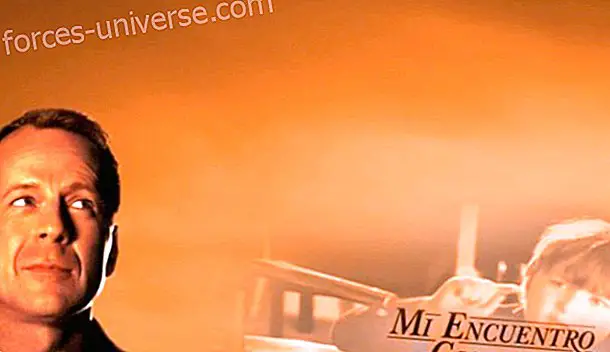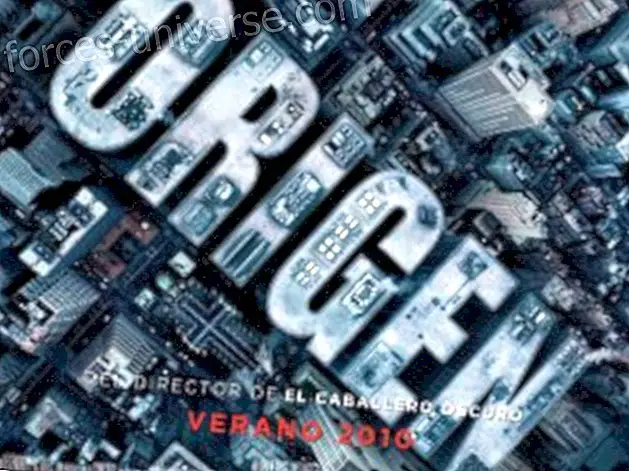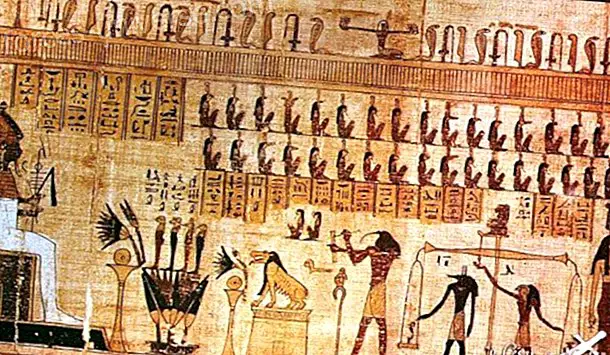Interview with Christian Felber: “Banks should aspire by law to the common good”
- 2014
 The Austrian activist proposes in his latest book new rules to democratize the monetary system
The Austrian activist proposes in his latest book new rules to democratize the monetary system
Are pensions guaranteed? - The author of 'The economy of the common good' and 'Money. End to middle 'explains if the current pension system is viable and if these would be guaranteed in a new economic model based on the economy of the common good
Christian Felber (Salzburg, 1972) is one of the gurus most followed by those who dream of an alternative to the current economic and monetary system. Bachelor in Hispanic Philology, Psychology and Political Science, and contemporary dance dancer, in 2010 he became the father of the economy of the common good, a movement that lays the foundation for the creation of a new economic model that prioritizes citizen welfare by above the interests of markets and capital. Unlike many other thinkers, the theoretical principles that Felber presented in the bestselling The Economy of the Common Good (Ed. Deusto) have given way to concrete actions, such as the emergence of municipalities that, on a small scale, are governed by the principles of this movement. In Spain there are already two: Miranda de Azán (Salamanca) and Carcaboso (Cáceres), and soon many more will be attached to the current.
This Austrian, co-founder of ATTAC and Professor of Economics at the University of Vienna, has just published a new book in which he exposes the steps to follow to change the prevailing monetary system. In Money, from end to middle (Ed.Deusto, in Spanish; Miret Editorial, edition in Catalan) Felber proposes in detail new rules of the game, radically different from those that triggered the financial crisis that started in 2007 and how serious consequences It has had for the population. The work has just received the getAbstract International Book Award 2014 for the best business book of the year.
 - How do you create money?
- How do you create money?
- The cash is created by the Central Bank, where the bank money also comes from, in a very small percentage; The remaining 90% of these virtual figures are created by commercial banks through the granting of credits and the purchase of assets.
- What are the main dangers of commercial banks creating most of the money?
The more unfair distribution of money, inflation, instability and non-cash coverage of bank accounts.
What kind of economic system do we have?
It is a capitalist market economy in which everyone tries to accumulate the maximum amount of material goods and monetary wealth. The indicators of economic success measure the financial benefit of the company, the financial income of the investment and the gross domestic product of the national economy; Capital increase is the maximum objective and not the satisfaction of basic needs or that everyone can have a good life.
However, you say he is a liberal.
Reducing freedom to property freedom is a very doubtful and dangerous definition. In a truly free society there are many more freedoms: from self-determination, security, the satisfaction of needs, the guarantee of fundamental rights, political participation Ethics, an ecological and healthy environment; In short, freedoms and rights that are more important and essential than the right to property.
Why do you argue that the current monetary system lacks democratic principles?
There is no country in the world in which a majority of the population has decided that there should be systemic banks that are rescued with taxpayer money, which are not dismembered after It is the rescue, that there is free movement of capital to tax havens and that both high frequency trade with stocks, such as vulture funds and phantom banks are legal.
But, why are they allowed?
Because parliaments and governments legalize them, even though citizens would have made different decisions if they had been consulted.
Already, but the citizens do know that they vote for the parties that then take charge of forming government and pass those laws
Voting a party and hoping that that party will marry another party and the two will do exactly what the voters want is a form of democracy, but also an illusion in many ways. Ssimos cases. That is why we have begun to look for a more effective democracy.
Explain .
A real democracy must translate the preferences, values and majority needs of citizens more literally into laws and rules. And voting every four years to a party is perhaps the poorest and least effective form of democracy. I call it predemocracy.
- What would be the first step to be more democratic?
- That there were collective sovereign rights and a more balanced division of power between citizens and their representatives in which citizens were responsible for drafting the entire constitution, not just monetary and economic. Parliament could only make those laws that execute the directive will of the constitution written by the people. It is a single improvement, a single measure towards real sovereignty, but only with that would we have another monetary system, another economic system and another democracy.
- Precisely, the way of working of the assemblies that were organized in the 15-M had a similar mood to the one that you expose.
- If you remember that speech, it means we have elements in common.
- Especially in the requirement that citizens become more involved in decision-making to improve the democratic quality of the system.
- The most important condition is to become Zoon politikon - political or civic animal - instead of being idiots, a term that comes from ancient Greek and refers to people who stay in small houses and do not get involved in democratic processes Not even in political debates. Only if many zoons politikons get involved could democratic assemblies take place that will write tomorrow's constitution.
- Are there many idiotic people?
- There will always be a part of the idiot population, but it is a historical process: for example, 100 years ago in Austria we did not even know what democracy was and today it seems like a drawer, but it is not yet a real democracy, a step is needed plus. It is not necessary for everyone to turn from idiot to zoon politikon, it is enough for the proportion to grow.
- Who has built the current monetary system?
- For centuries many parliaments, kings and queens have been creating it. The first commercial banks emerged in the fourteenth century; the first central banks, in the XVII, and since then the system has been refining and differentiating itself, always serving the interest of minority groups, of the great powers, and therefore it is neither coherent nor democratic nor, therefore, fair. But nobody had a master plan. The monetary system is a tool that should be designed in a very conscious and democratic way.
- That is, the current monetary system continues to serve a minority.
- And the proof is that inequality is skyrocketing more and more despite the fact that everyone says they are against it; There is no one to support it and still it continues to grow. A very clear proof that the system continues to benefit the richest.
- You criticize that the control and supervision of the current monetary system is in the hands of only the 20 richest countries in the world.
- We have 192 countries, and why will a twenty score determine the course of the monetary system? And within each country the same thing is repeated: a minority of the population, which does not reach 20%, makes the rules to which the rest is subject. That is why I believe that the most important reform is not of the Central Bank, of the commercial bank, of credit, of the creation of money, but of democracy.
- What is a ghost bank?
- In theory, bank supervision exists to ensure that credits are granted exclusively by institutions that have permission to do so and that they include them in their balance sheets. At the moment when the credits are transferred outside the balance sheet, or granted without authorization, the phantom banks appear. If the money from these loans is not repaid, the banks or institutions that own these funds will also fail. This is the great danger of unsupervised banks that grant very risky loans.
- If these types of entities are still legal, we have learned little from the crisis that began in 2008 with the bankruptcy of Lehman Brothers.
- Who we are? We have all learned. The elites have learned that if we continue with indirect democracy, they can continue to impose their interests on the entire population, and that is why they try to maintain indirect democracy at all costs, a false democracy.
- And the rest?
- The majority of the population has learned that systemic banks should be dismembered, taxed large fortunes, limited capital flows to tax havens and banned a whole series of financial derivatives. But they don't have the political power to implement the lesson.
- In his latest book he advocates a profound reform of the monetary system, but at the same time he warns that it is very difficult to occur.
- Sometimes you have to tackle difficult projects because the alternative is to continue with the same and that is even more complicated. Look how people are, between despair and loss of dignity! And, surely, this is still a greater evil than addressing a difficult project that possibly brings the solution. Human rights, democracy and equality of women and men have never been a gift from the powerful.
- Does the new reform of the monetary system have to go in line with the report that Joseph Stiglitz prepared for the United Nations? What would be the most interesting issues that should be implemented?
- That the citizens determine the objectives of the central banks and that their bodies are composed of representatives of the society, that the creation of money is a monopoly of the Central Bank, that the commercial banks are oriented to the common good, that not only be evaluated every A credit institution for its financial viability, but also for its ethical viability and its contribution to the objective of the economy, ending capital income, limiting inequality and perhaps establishing a cooperative international monetary system instead of the hegemony of the dollar.
- How do you assess the emergence of Podemos, a new party in Spain that could break the prevailing bipartisanship for decades in the next general elections?
- In Spain, as in Austria, traditional parties do not offer an alternative to their policy, which has caused the crisis and cannot resolve it. A new political force tells another story and, as there is much trouble and despair, many people opt for the alternative in the hope that it will be implemented and put into practice.
- Is the same also happening in your country, Austria?
- Each time the participation in the elections is lower, the discontent with the political system is the majority and there is a growing support for direct democracy. In my opinion, I do not believe that the solution is another party with other content, but another division of powers between citizens and their representatives; A sovereign democracy.
- What would decision making be like in a direct democracy?
- The idea is that a part of the citizenship meets to define the fundamental issues of the monetary order of tomorrow and to look for solutions to each of the problems. After a few months, the resistance against each of the proposals would be measured and the one with the least opposition would win, which would restrict global freedom to the least degree possible. At the last meeting, a delegate would be elected to represent the municipal meeting at national, even European level, where the results of the municipal assemblies would be synthesized, preparing the final variants, which will be subject to a referendum throughout the country.
- How is the degree of resistance of a proposal measured? You propose a raised arms method, similar to how decisions were made at the 15-M assemblies.
- It is a slightly more refined method, which I consider high social technology and developed by two mathematicians from the University of Graz. There are several variants: the easiest is to raise zero, one or two arms, depending on the degree of pain that one He feels when he hears the proposal and it corresponds to the resistance it generates. If you agree with the proposal or have nothing against it, do not raise any arm; If you feel restless or consider that there are important issues to consider, raise one arm, and if you raise both arms it means that you veto the proposal. Another variant would be to evaluate with resistance points between zero and ten: the proposal that obtained the least amount of points obtained would be the winner.
- In Spain there are already municipalities that apply the principles of the Economy of the Common Good, such as Miranda de Az n (Salamanca) and Carcaboso (C ceres).
And about thirty Spanish municipalities -150 in the world- are in the process of approval by the municipal councils and accreditation by the Association The Promotion of the Economy of the Common Good. In total there are ten municipalities that have joined the world, have been very fast, although the movement is very young and the tools are not refined.
In what do these municipalities differ from others?
That they are a bit more valuable, although all suffer from globalization, emptying of the territory, fiscal competition, which goes to their expense, and the tendency to build large infrastructures from large transnational areas and industry. Everyone is suffering and, little by little, they realize that they have to be the ones who take the reins to help themselves and, therefore, they are increasingly interested in this type of alternatives.
Did banks exist in the economy of the common good?
Of course, but the size would be limited to 30, 000 million euros in assets the threshold set by the European Union for its supervision- and will have They must aspire by law to the common good. That can be expressed in a series of requirements: do not distribute benefits to owners, do not pay interest to savers and, more importantly, evaluate in each loan application not only financial viability, but also In ethics. And if these investments contribute greatly to values such as sustainability, education or health, they will be financed in the cheapest way.
Could these banks invest assets in the stock market?
My proposal is that there should not be any kind of revenue on capital. The financial institution could not grow through interest, dividends or purchase and sale profits. This would benefit 90% of the population, although it would generate a strong rejection because people believe they are the beneficiaries of capital income, but it is an illusion. They are a mechanism for redistributing money that pays the majority through their work to a minority. 90% of the population pays a multiple of the interest it receives. It is something that banks should teach.
Would there be any practice that would be prohibited in an economy of the common good?
Vulture funds, ghost banks, systemic banks, tax havens, income on capital and all speculation. But that loss of freedom would be offset by a much higher gain in freedom: full employment, consented work, distribution of just wealth, less poverty, less exclusion. n, healthy ecosystems
Are you not afraid of becoming the worst nightmare of speculators?
- Well, some are not very happy with me, they cross me out of everything.
- Have you received threats?
- No, I have a very powerful protective angel.
The economics professor founded the democratic bank project, Demokratischen Bank
ATTAC, a non-profit association, denounces that on November 5, Law 21/2014, of November 4, was published in the BOE, which modifies the consolidated text of the Intellectual Property Law, approved by Royal Decree Legislative 1/1996, of April 12, and Law 1/2000, of January 7, of Civil Procedure, by virtue of which the total or partial reproduction, as well as the download of the material of this page is likely to be taxed by a fee to be charged by CEDRO, against our will, and therefore we request its immediate repeal.
ATTAC Spain does not necessarily identify itself with the published contents, except when they are signed by the organization itself.
Source: http://www.attac.es
Raquel Quelart - La Vanguardia
Interview with Christian Felber: “Banks should aspire by law to the common good”






